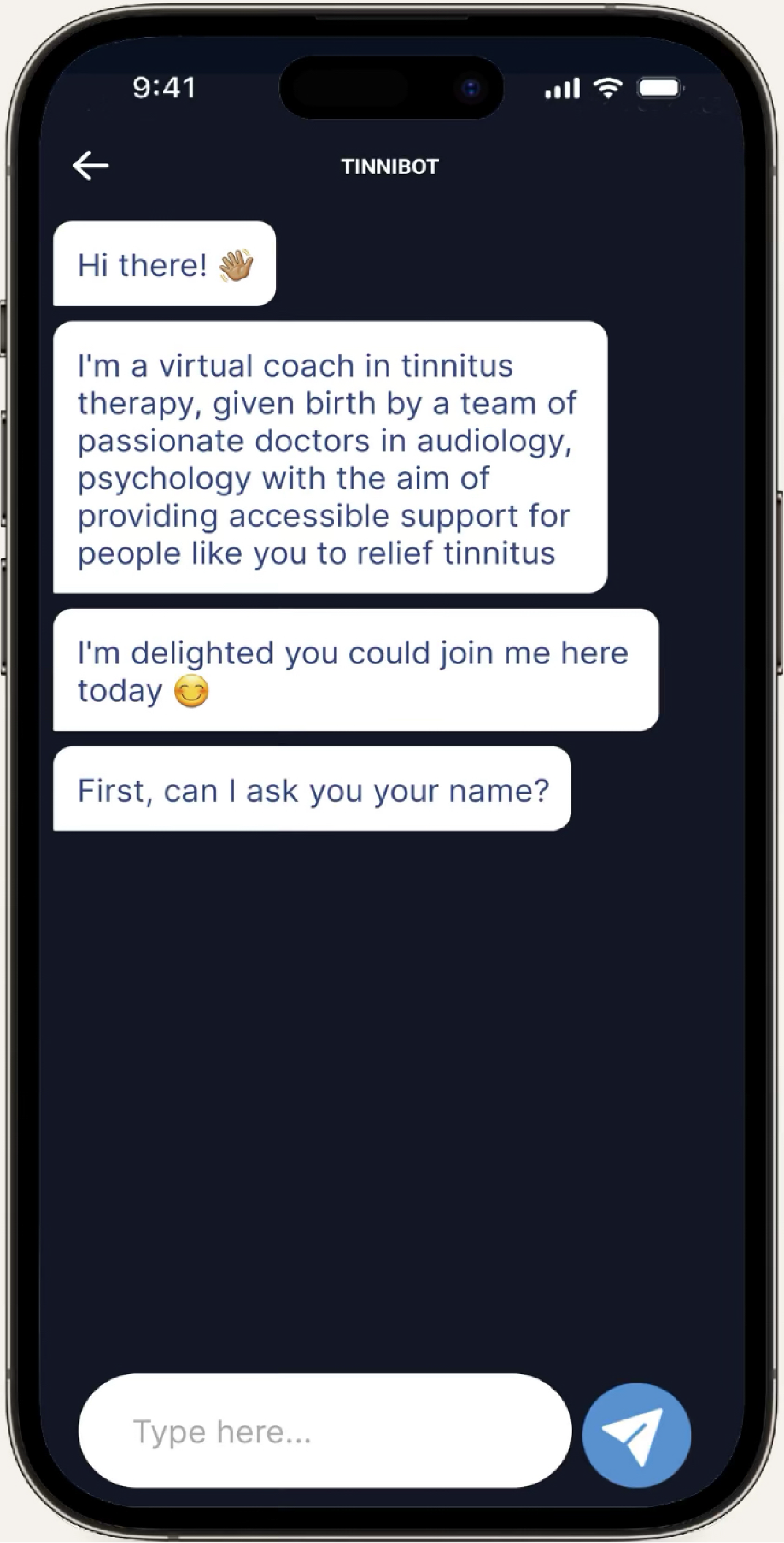Often described as a ringing or buzzing noise in the ear, tinnitus affects millions of people around the world and yet has no cure. However, researchers have now found that, with the help of a smartphone app that gives users training and therapy, the debilitating impact of tinnitus could be significantly reduced in a matter of weeks.
The findings come as the result of a trial exploring the use of an app, MindEar, to deliver cognitive behavioral therapy (CBT), which aims to change the way a person thinks about their tinnitus so that it becomes less noticeable.
Researchers recruited 30 adults with tinnitus and split them into two groups; one received CBT via MindEar’s chatbot, Tinnibot, whilst the other had access to four 30-minute online counseling sessions alongside CBT with Tinnibot. The intervention lasted for 8 weeks, but the participants were followed up for a further 2 months.

Study participants chatted to Tinnibot.
Image credit: MindEar
The study found that in both groups, the participants’ tinnitus-related distress decreased significantly over time. “In our trial, two thirds of users of our chatbot saw improvement after 16 weeks. This was shortened to only 8 weeks when patients additionally had access to an online psychologist,” said lead author and co-founder of MindEar Dr Fabrice Bardy in a statement.
Tinnitus, which is thought to affect more than 740 million adults globally, can sometimes go away on its own. For those in whom it remains, however, the unpleasant buzzing, grinding, or ringing sounds that characterize it can be life-changing. People with tinnitus can experience significant changes to their hearing, concentration, and mood, sometimes to the point of anxiety and depression.
Whilst there isn’t a cure for tinnitus, there are management strategies. “One of the most common misconceptions about tinnitus is that there is nothing you can do about it; that you just have to live with it. This is simply not true. Professional help from those with expertise in tinnitus support can reduce the fear and anxiety attached to the sound patients experience,” said Bardy.
The issue comes in accessing such help, as fellow study author and psychologist Professor Suzanne Purdy explained. “Cognitive behavioural therapy is known to help people with tinnitus, but it requires a trained psychologist. That’s expensive, and often difficult to access.”
That’s where MindEar and Tinnibot hope to fit in, with the researchers concluding that their findings demonstrate that internet-based delivery of CBT represents a more accessible and highly effective tool for managing tinnitus. It’s also hoped that future studies will help to make the experience more individualized, figuring out if there’s a relationship between particular characteristics of a tinnitus patient and how successful different modes of therapy are.
This isn’t the first attempt at using tech to treat tinnitus either. Back in 2022, scientists trialed an app using sound therapy, whilst earlier research even tried out tongue-zapping as a treatment.
The study is published in Frontiers in Audiology and Otology.
Source Link: The Answer To Overcoming Tinnitus Could Soon Be In Your Smartphone